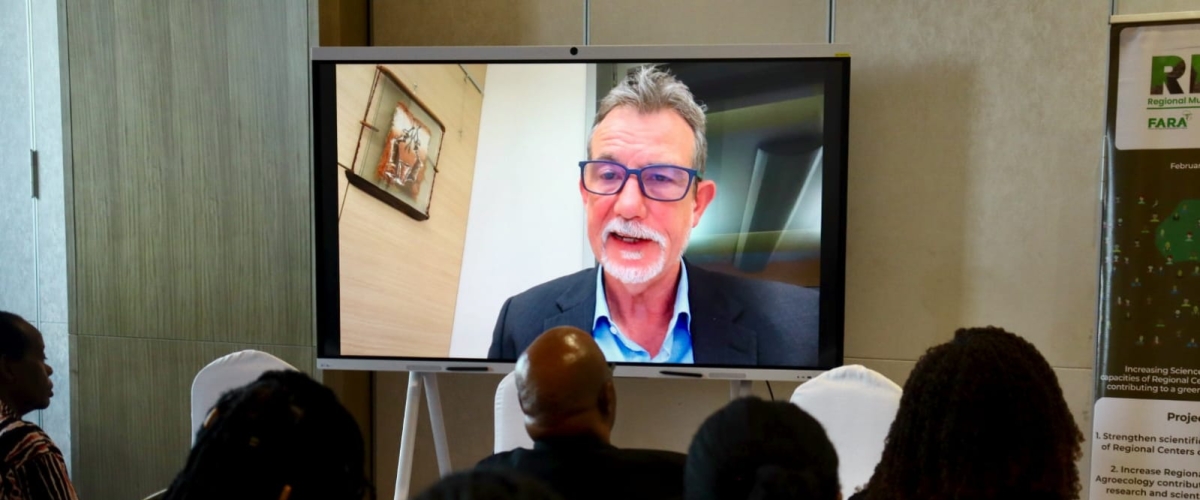
Bridget Kakuwa-Kasongamulilo & Benjamin Abugri
Nairobi, Kenya – March 2025
Eastern Africa recently hosted a landmark event that brought renewed energy and direction to the region’s agricultural transformation through agroecology. The 2nd Eastern Africa Agroecology Conference 2025 (EAAC25) was held from 25th to 28th March 2025 at the Argyle Grand Hotel, directly opposite Jomo Kenyatta International Airport (JKIA) in Nairobi. Organized by Biovision Africa Trust, the conference convened key stakeholders from across the region and beyond to explore how agroecology could be harnessed to build resilient, sustainable, and inclusive agri-food systems.
Held under the theme “Strengthening Agri-Food System Transformation for Resilience, Sustainability, and Socioeconomic Development,” EAAC25 featured sit-in sessions, field excursions, exhibitions and hybrid participation that included both in-person and livestreamed sessions. The event inspired discussions and commitments towards investing in environmentally friendly, long-term solutions to replace historically unsustainable food system practices.
One of the most significant moments of the conference was the Regional Policy Roundtable, held on 25 March 2025 as a side event organized by CAADP-XP4 Consortium Partners, under the leadership of ASARECA, in collaboration with IFAD. The roundtable was coordinated by the CAADP-XP4 Policy Technical Working Group and focused on enhancing the integration of agroecology into the post-Malabo CAADP Process.
In his opening remarks, Prof. Cliff Dlamini, Executive Director of CCARDESA, stressed the critical need to embed agroecology into policy and practice. “Agroecology is not just an approach; it is a necessity for the transformation of Africa’s food systems. We must enhance policymakers’ capacity to understand its benefits and align regional voices to achieve the CAADP commitments,” he stated.
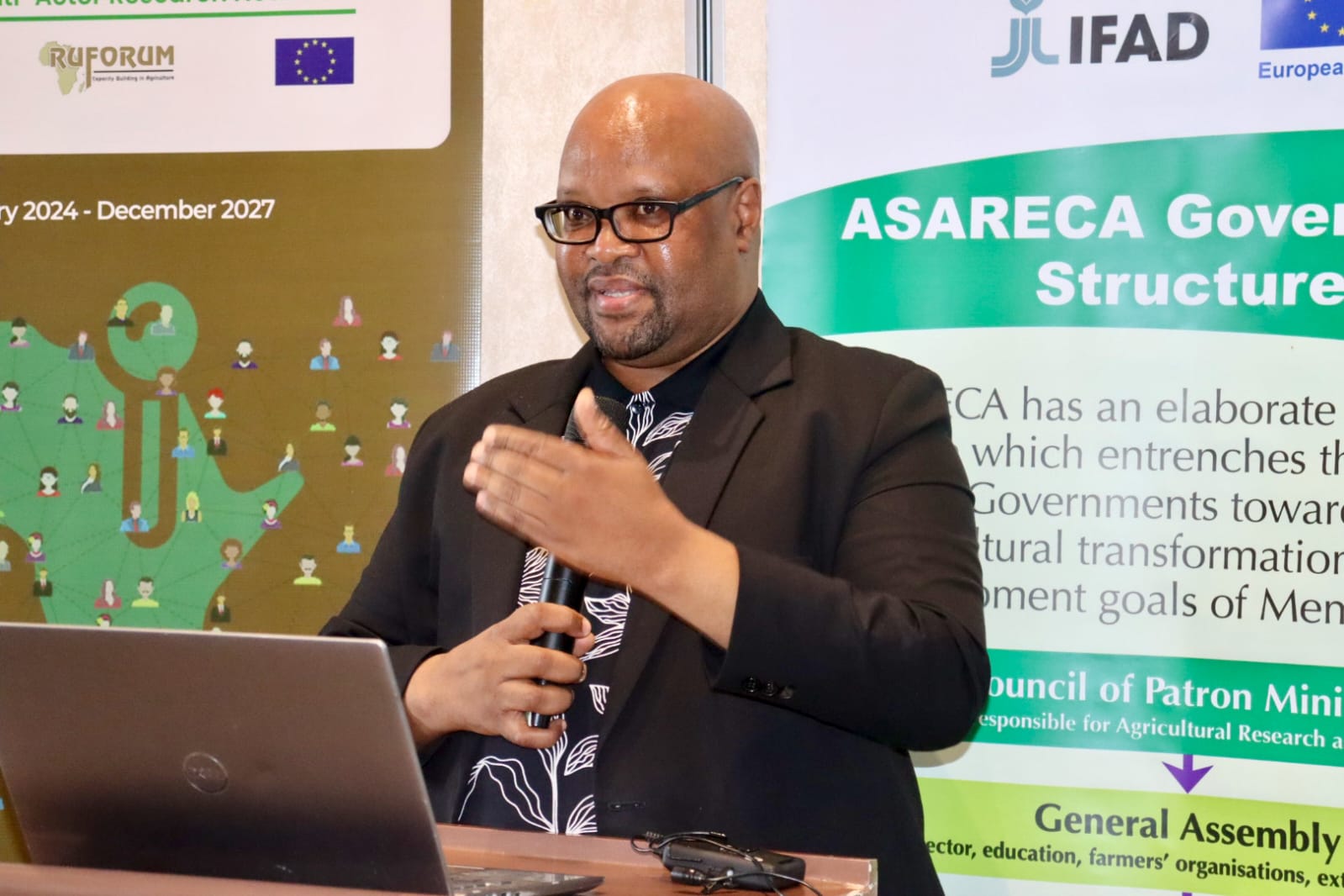
A representative from the European Commission's Directorate-General for International Partnerships (EC-DG-INTPA) Marion Michaud reaffirmed their commitment to the CAADP process, noting that they had been closely following and supporting agricultural initiatives in Africa, including the Regional Multi-Actor Research Network (RMRN) project under CAADP-XP4. “We commend the African Union Commission (AUC) and member states for their unwavering commitment to CAADP. Agroecology demands the collaboration of all actors—governments, farmer organizations, academia, civil society, and the private sector—to ensure food and nutrition security,” said the INTPA representative.
Mr. Chiluba Mwape from the African Union Commission (AUC) emphasized that the AUC had been fostering a supportive environment for CAADP implementation and recognized agroecology as a key pathway for strengthening resilience. “Agroecology is essential for strengthening agri-food systems and increasing resilience. Our policies, including the CAADP framework and the Nairobi Action Plan on Fertiliser and Soil Health, reflect this priority,” an AUC representative noted. Mr. Chiluba also highlighted the importance of advocacy and governance, recommending that its policies be reviewed to better incorporate agroecological principles.
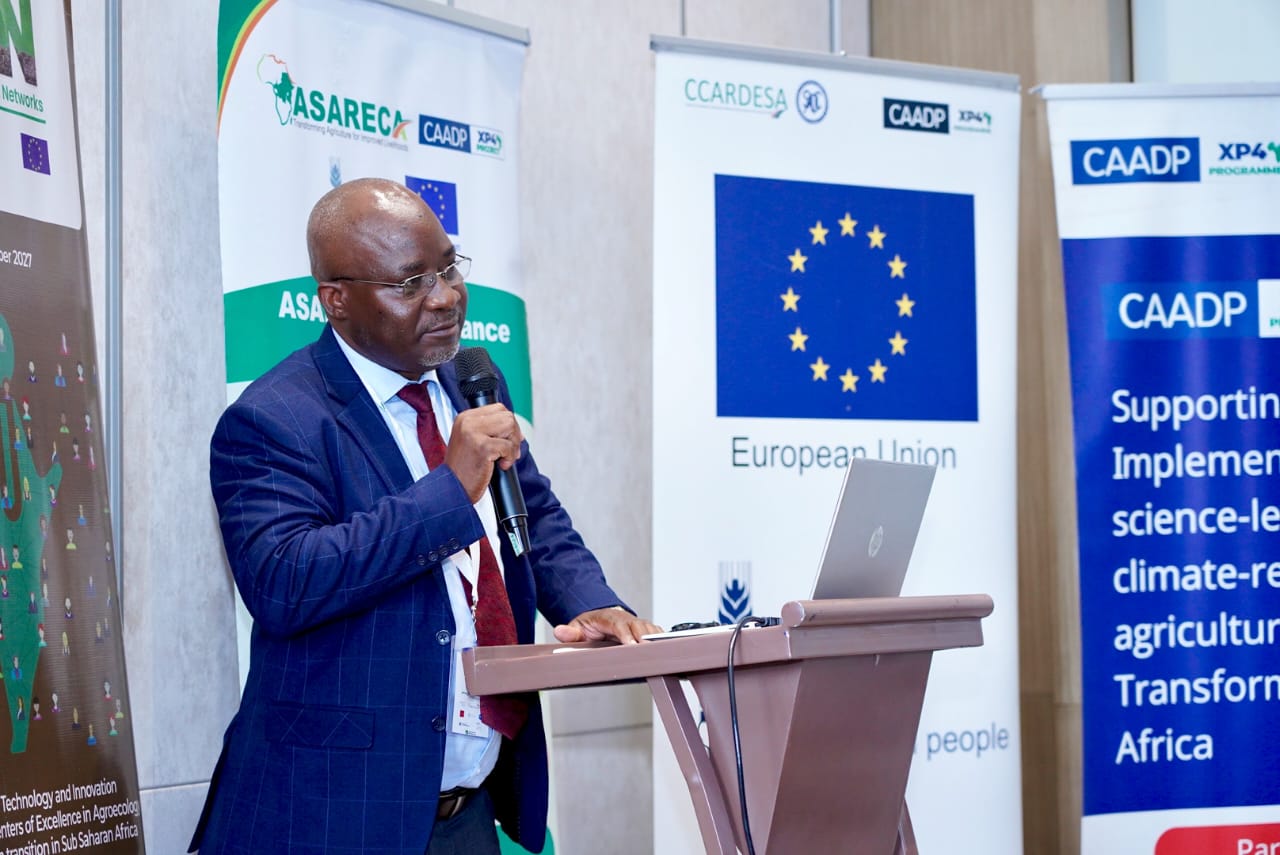
Ms. Mutinta Nketani outlined key policy entry points for integrating agroecology into the post-Malabo CAADP strategy. She emphasized the need for high-level dialogue with the AUC, inclusion of agroecology in NAIPs and the CAADP Biennial Review, and policy coherence across national frameworks like NDCs, NBSAPs, and food systems pathways. She called for capacity building of policymakers, stronger grassroots advocacy, and harmonized civil society efforts. “We must ask what transformation really means, and for whom,” she noted, urging meaningful integration and adequate resourcing of agroecology in national policies.
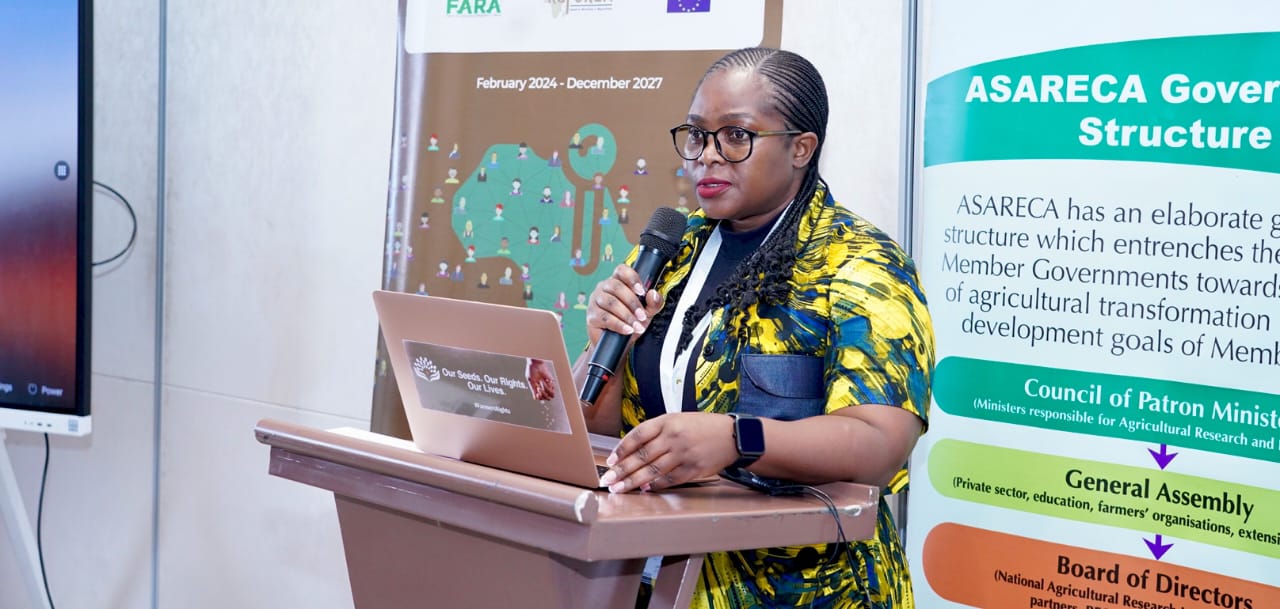
The roundtable featured robust discussions on issues such as land ownership, with participants calling for harmonized land tenure policies and improved access to finance and markets for smallholder farmers. Participants also stressed the importance of agricultural insurance and of integrating agroecology indicators into the CAADP monitoring and implementation frameworks.
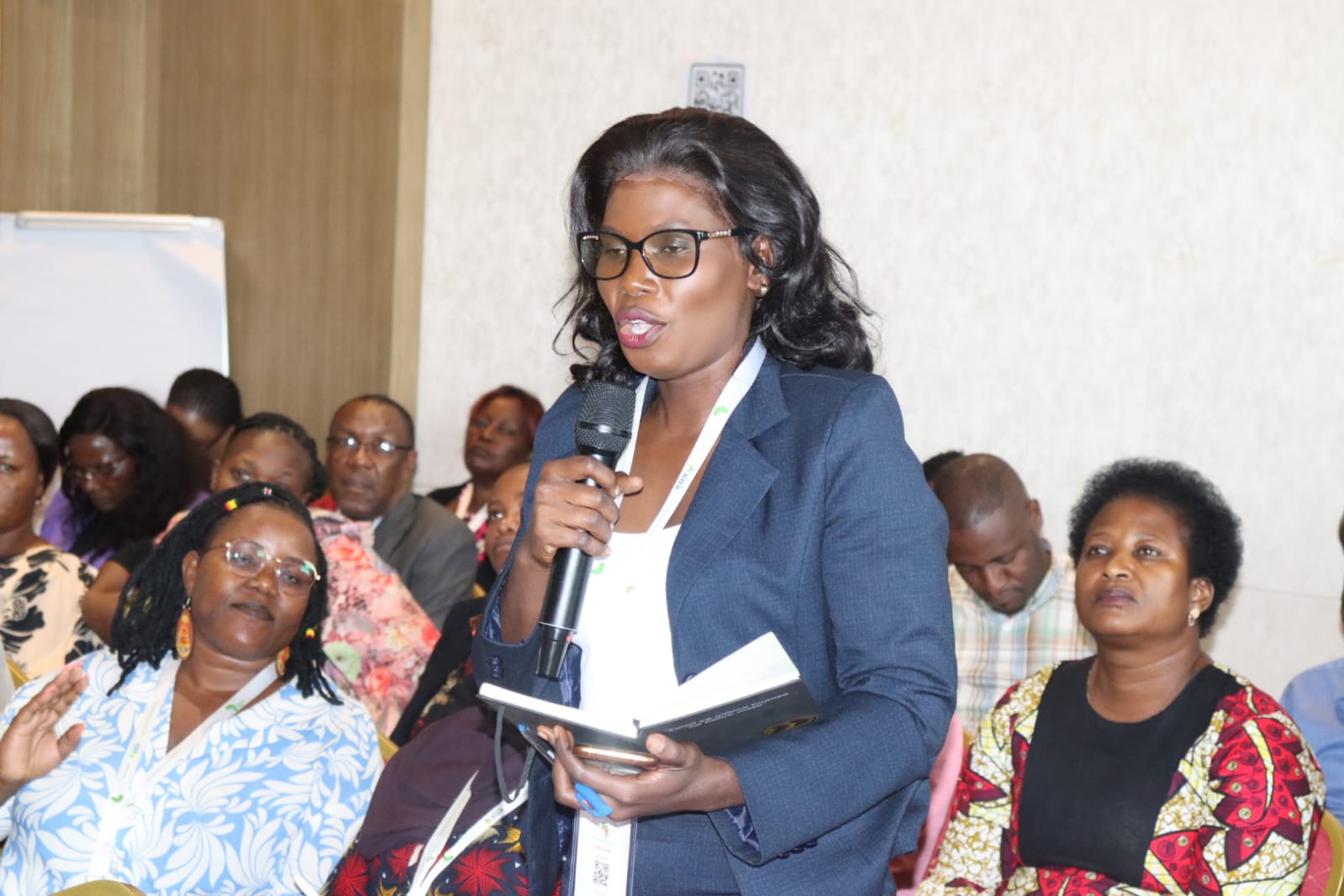
IFAD representative Fenton Reed emphasized the value of documenting and showcasing success stories and promoting policy coherence across national and regional levels. Participants acknowledged that governments had made commitments to domesticate the outcomes of the United Nations Food Systems Summit (UNFSS) and emphasized the need for inclusive stakeholder engagement, especially involving women, youth, producers, and consumers. “It is vital that women, youth, producers, and consumers are part of this transition,” one participant stressed.
A female participant from Action Aid said that “Land tenure remains a critical issue in advancing agroecology. When communities work together, we see less land grabbing and more equitable access to resources. But to make real progress, we must also introduce supportive policies—like land insurance schemes—that particularly protect women, who provide over 70% of the labour in agriculture. Secure land rights, especially for youth and women, are essential if we want to build resilient, inclusive, and sustainable food systems rooted in agroecological principles.”
Mr. Alex Mutungi intimated that we are beginning to see agroecology reflected in national agricultural investment plans, from soil health to farming practices—but more must be done. We need to introduce measurable indicators, build capacity from grassroots to policy level, and ensure our leaders fully understand the value of agroecology. Strategic entry points exist, and with the right policies and financing, we can scale up agroecology and open up new, fairer markets for our farmers.”
Prof. Raymond Auerbac ended by saying that one of the reasons the CAADP process struggled is because it was rushed and failed to integrate agroecology. We ignored the importance of safe food, cultural knowledge, and resilient systems. Agroecology gives us an opportunity to restore traditional food systems, reduce health costs, and create sustainable livelihoods—especially if we involve youth and rethink how we manage land and food.
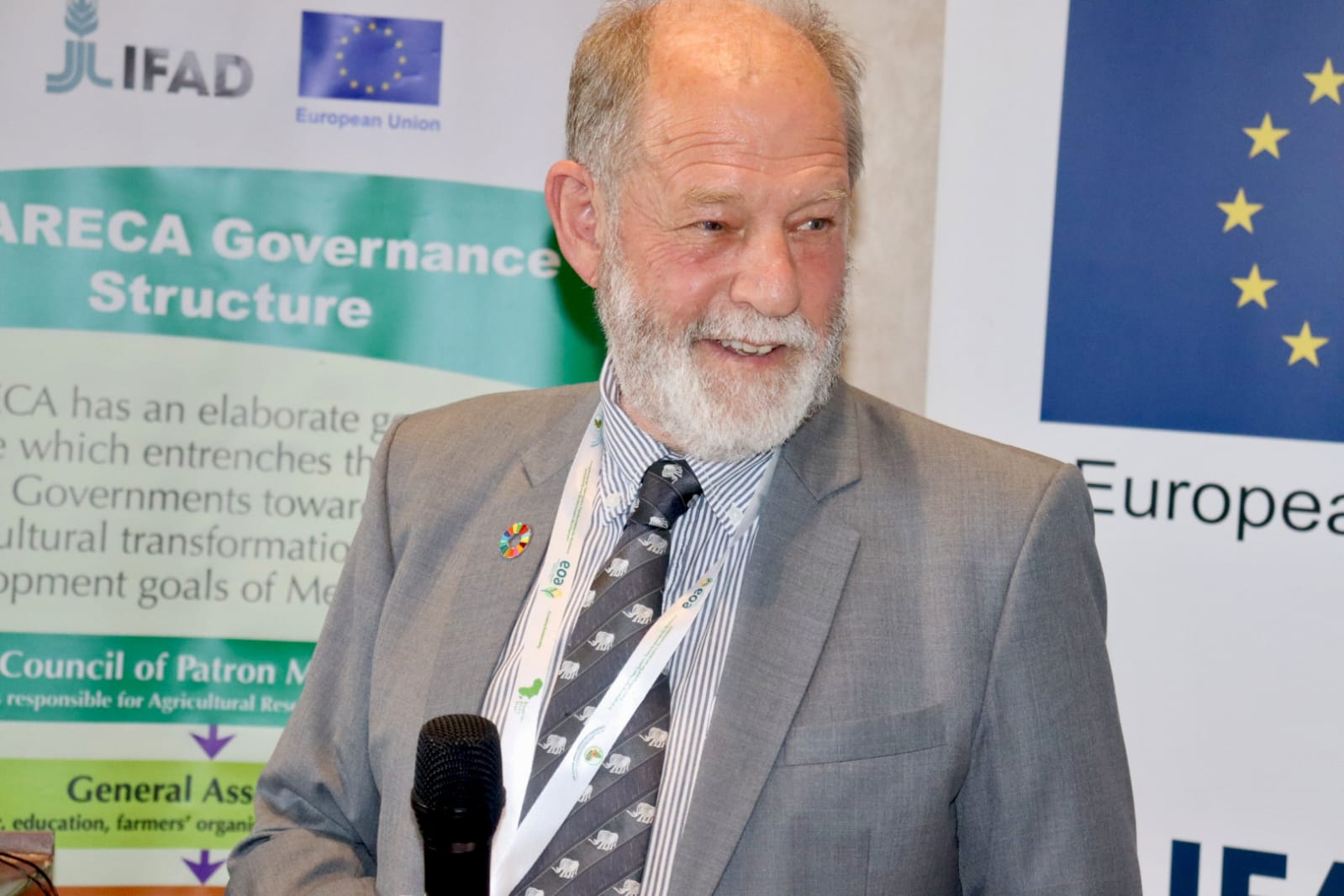
The roundtable concluded with the development of a draft roadmap and monitoring and evaluation framework to support the mainstreaming of agroecology into the post-Malabo CAADP Strategy and Action Plan, which Mr. Moses Odeke, Acting Head of Programmes at ASARECA, shared. It served as a key moment for collaboration, knowledge sharing, and strategic planning, reinforcing the commitment of CAADP-XP4 and its partners to sustainable food systems in Africa.
By the end of the side event participants reaffirmed the shared vision for an inclusive, practical, and firmly rooted agroecological transition based on African priorities and realities.





